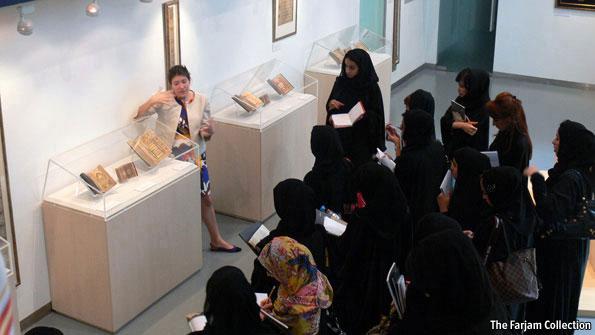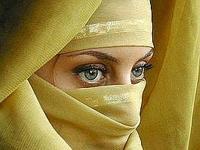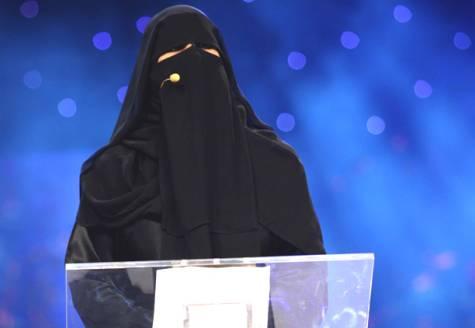
It’s mid-morning at the Madinat Jumeirah, a luxury resort in Dubai. Dozens of well-dressed women sit on white couches, waiting. They include artists, gallerists, auction-house directors and local collectors, most of them princesses or wives of the well-off. They’ve been waiting an hour. Suddenly, 20 or so women, dressed in traditional Islamic abayas, enter the room and move through the crowd like black smoke. Her Highness Sheikha Manal, daughter of Dubai’s ruler, has arrived.
This is Ladies Day at Art Dubai, the biggest contemporary art fair in the Middle East. Sheikha Manal has come to attend talks by Judith Greer, an American collector, and Venetia Porter, a curator of Islamic art for the British Museum. The fair itself hasn't yet opened, but a select group of women is always given a chance to preview and learn about the art on their own, without men. In a culture notoriously dismissive of women, one could easily assume Ladies Day to be a sideshow. But that would be wrong.
Connoisseurs from the west generally consider the art market in the Gulf underdeveloped. Compared to other emerging markets, such as India and China, there are few collectors, and museums, galleries and exhibitions are thin on the ground. But a cadre of women, both at the royal and grassroots levels, is leading the effort to bring the Arab art market into the mainstream.
Sheikha Manal and her sister, Sheikha Latifa, also at Ladies Day, are among a handful of royal women at the vanguard of this push. Working independently, the two have established artist studios, an exchange programme with foreign art fairs, and awards for young Emirati artists. Nearby in Abu Dhabi, the oil-soaked capital of the Emirates where both the Guggenheim and the Louvre are building affiliate museums, Sheikha Salama and her daughter, Sheikha Mariam, have created a series of seminars and activities to teach locals about art and culture.
Sharjah, home of the region’s largest art exhibition (the Sharjah Biennial, which, incidentally, is directed by another princess, Sheikha Hoor) boasts similar projects, such as an arts management training programme for local Emiratis. In the four years this programme has been running, half of the 520 staff members are women, as well as 12 of the 14 curators.
The UAE is not, however, the foregone capital of art in the Middle East, or even of the Gulf states. It is also not the only country in the region where women are taking leading roles in the art world. Qatar’s Sheikha Al Mayassa, the daughter of the Emir, runs the Qatar Museums Authority. Her latest project is launching Qatar’s Museum of Modern Arab Art, a collection of more than 6,000 pieces. Kuwait’s Sheikha Lulu Al Sabah in February held her country’s first-ever contemporary art auction. “Especially in the Middle East, having a title can be very helpful,” says Libya’s Princess Alia al-Senussi, who sits on the board of Art Dubai, in a bit of an understatement.
Click here for the full story:
The Economist
Photo Credit:
The Farjam Collection
Related links:
More About Dubai On AWR
More About Art On AWR
 Unicef's Regional Director for the Middle East and North Africa urges authorities to pass and implement laws setting 'reasonable minimum age' for marriage.
Unicef's Regional Director for the Middle East and North Africa urges authorities to pass and implement laws setting 'reasonable minimum age' for marriage. In a sharp reversal, more young women are now embracing online communities than their male counterparts, a new study says.
In a sharp reversal, more young women are now embracing online communities than their male counterparts, a new study says. It’s mid-morning at the Madinat Jumeirah, a luxury resort in Dubai. Dozens of well-dressed women sit on white couches, waiting. They include artists, gallerists, auction-house directors and local collectors, most of them princesses or wives of the well-off. They’ve been waiting an hour. Suddenly, 20 or so women, dressed in traditional Islamic abayas, enter the room and move through the crowd like black smoke. Her Highness Sheikha Manal, daughter of Dubai’s ruler, has arrived.
It’s mid-morning at the Madinat Jumeirah, a luxury resort in Dubai. Dozens of well-dressed women sit on white couches, waiting. They include artists, gallerists, auction-house directors and local collectors, most of them princesses or wives of the well-off. They’ve been waiting an hour. Suddenly, 20 or so women, dressed in traditional Islamic abayas, enter the room and move through the crowd like black smoke. Her Highness Sheikha Manal, daughter of Dubai’s ruler, has arrived.
 Saudi poet Hessa Hilal lashed out at hard-line clerics' religious edicts in verse on live TV at a popular Arabic version of "American Idol."
Saudi poet Hessa Hilal lashed out at hard-line clerics' religious edicts in verse on live TV at a popular Arabic version of "American Idol."